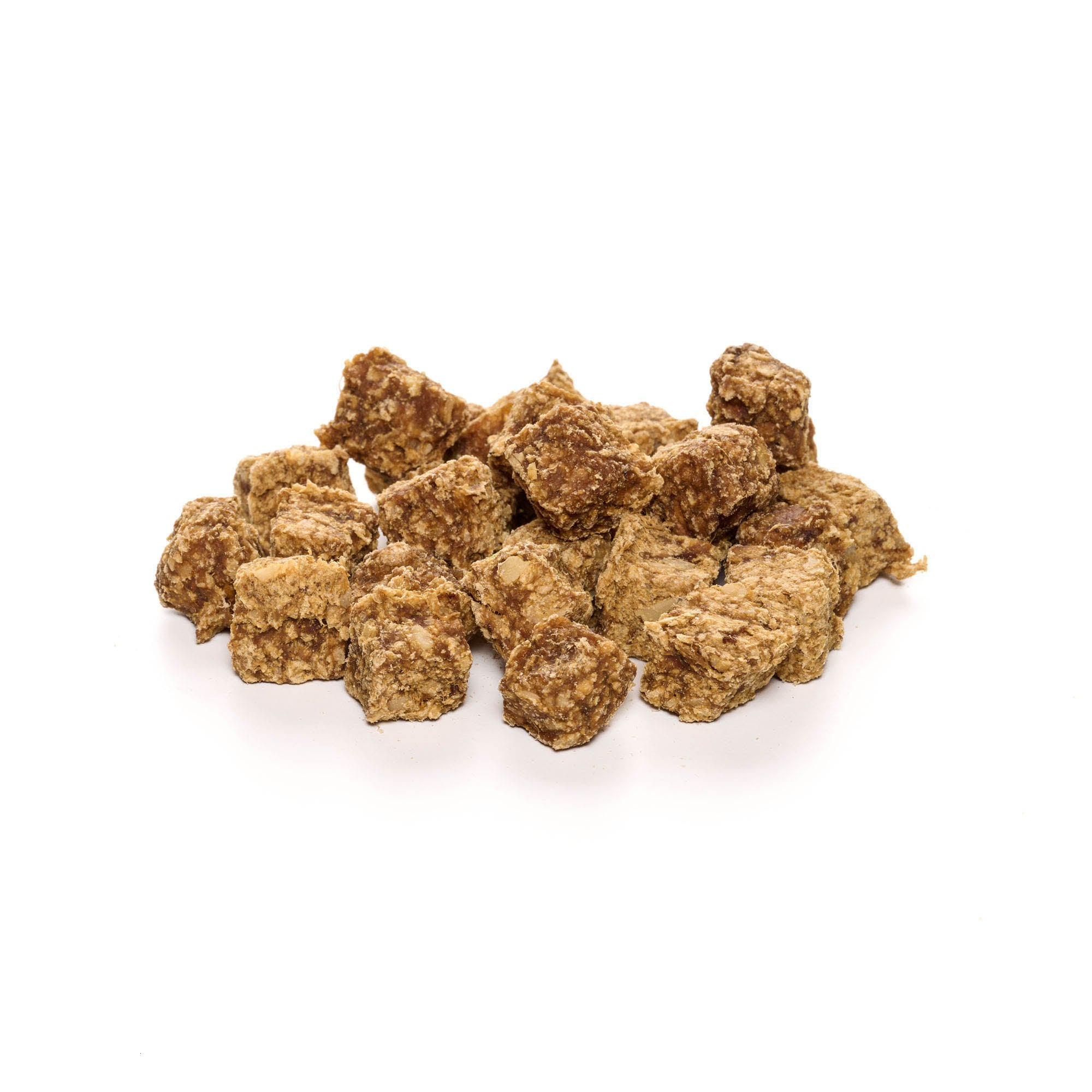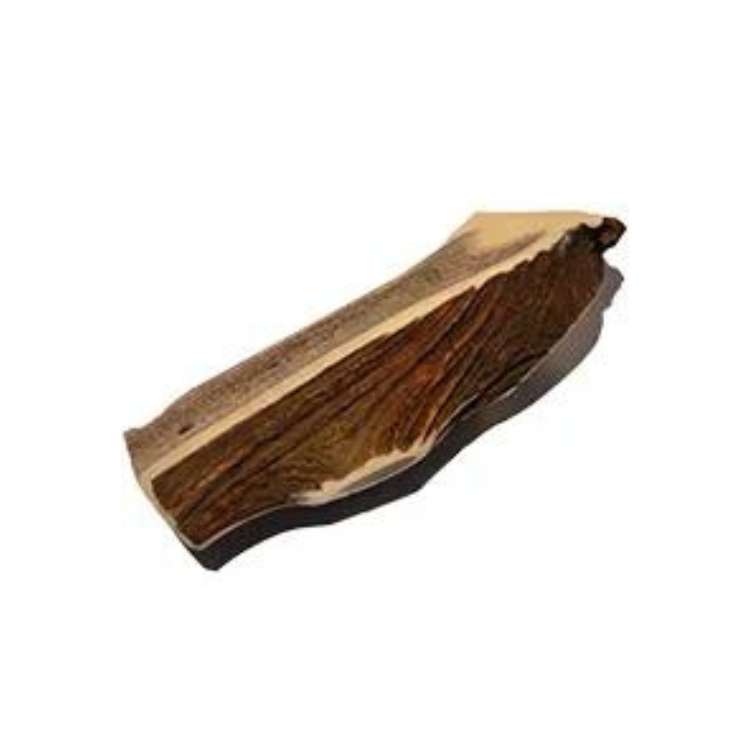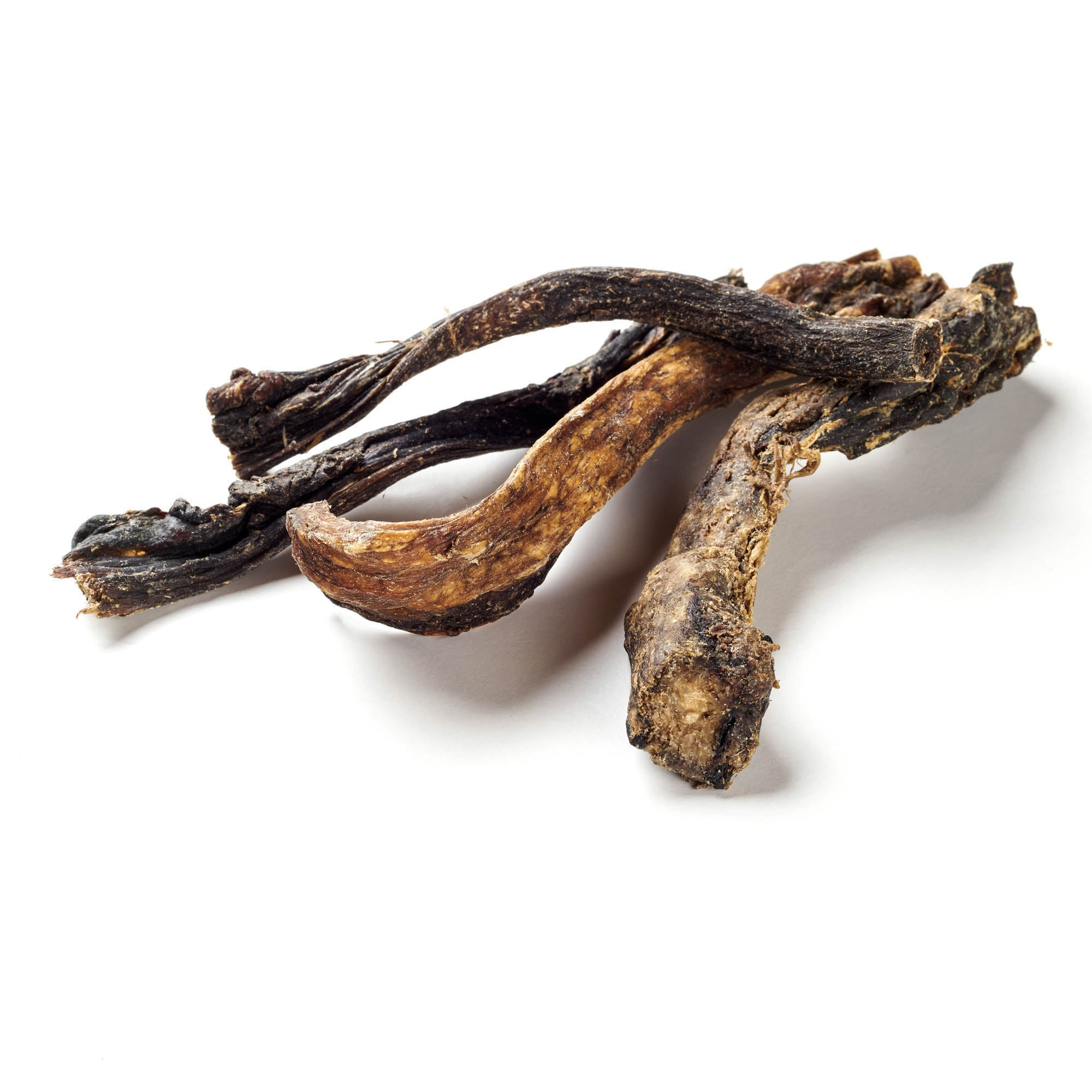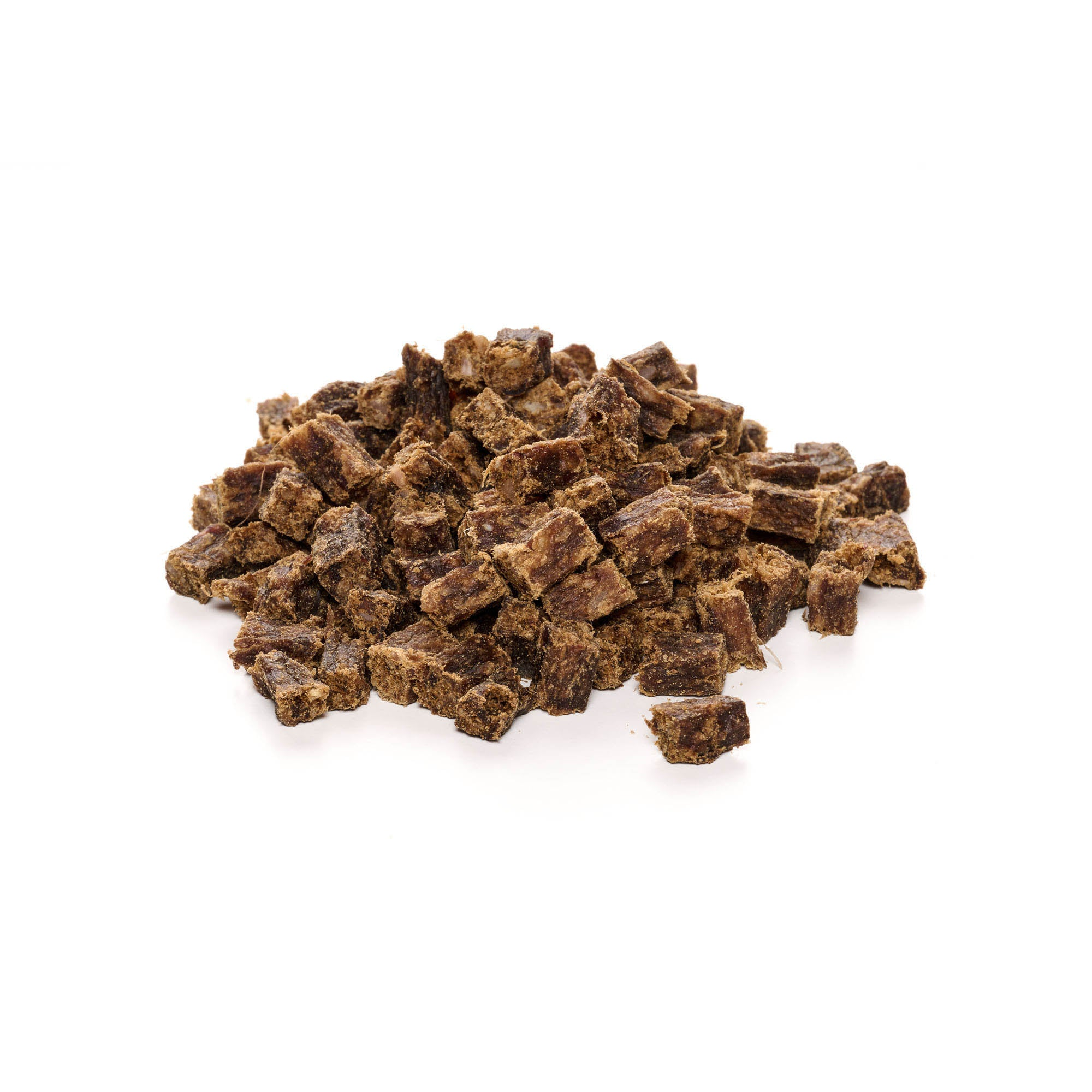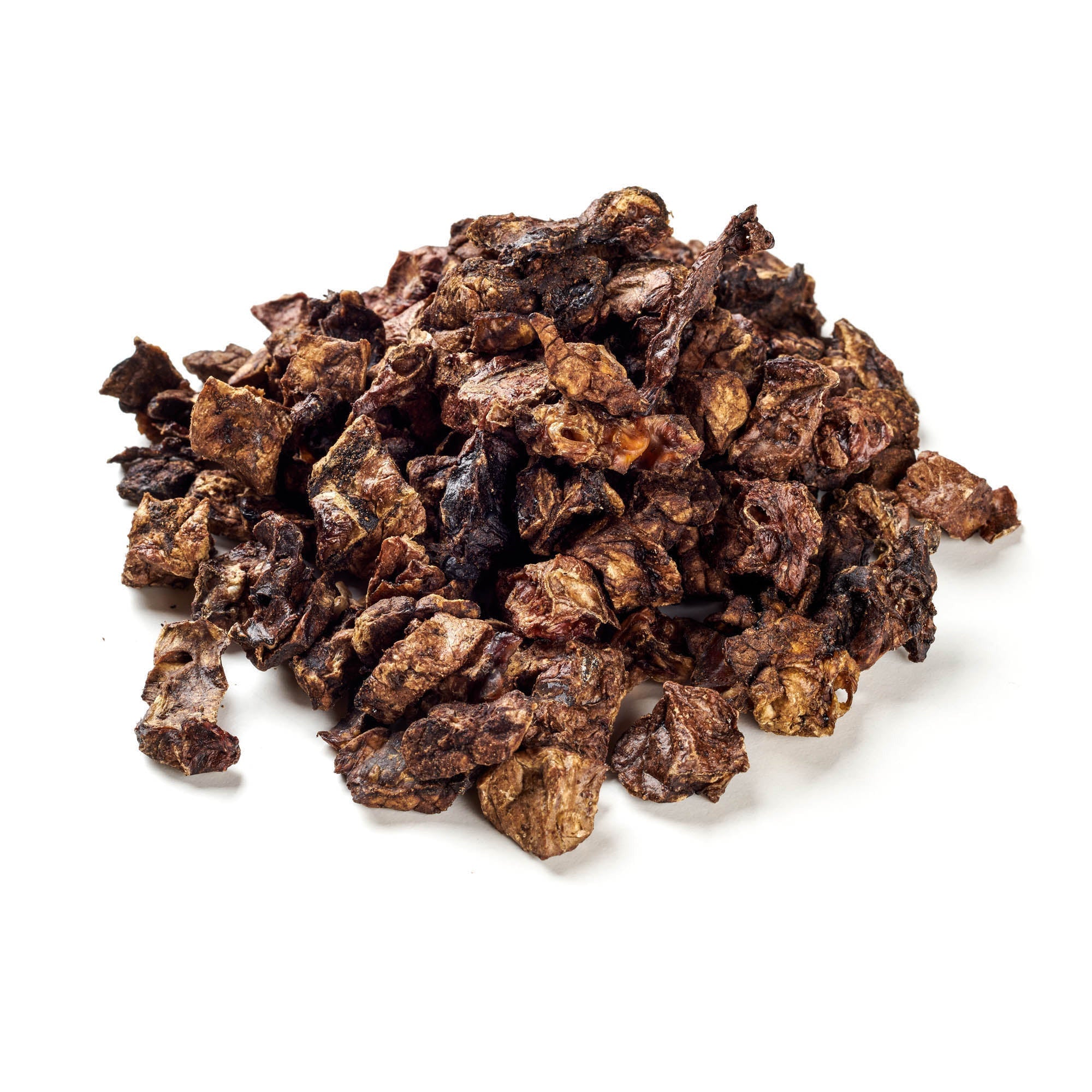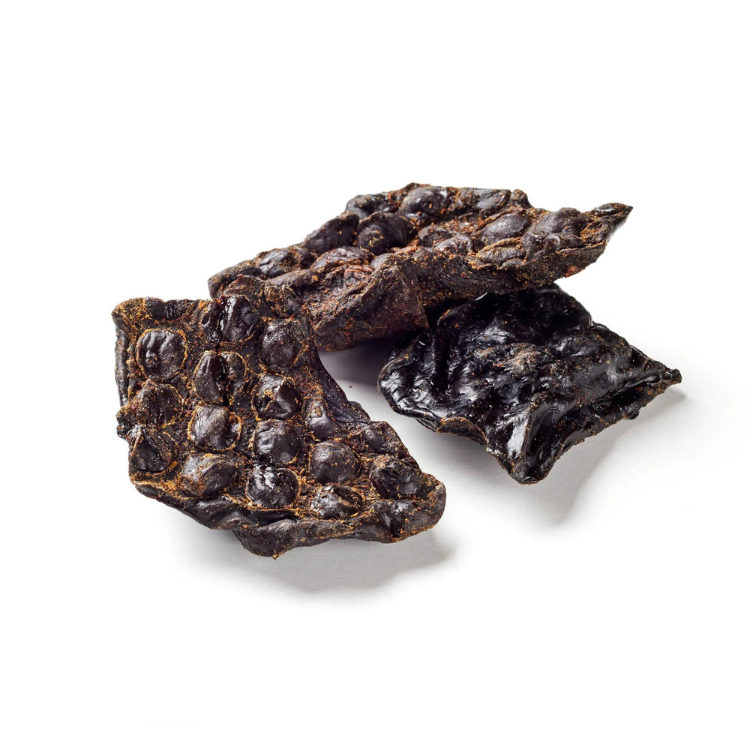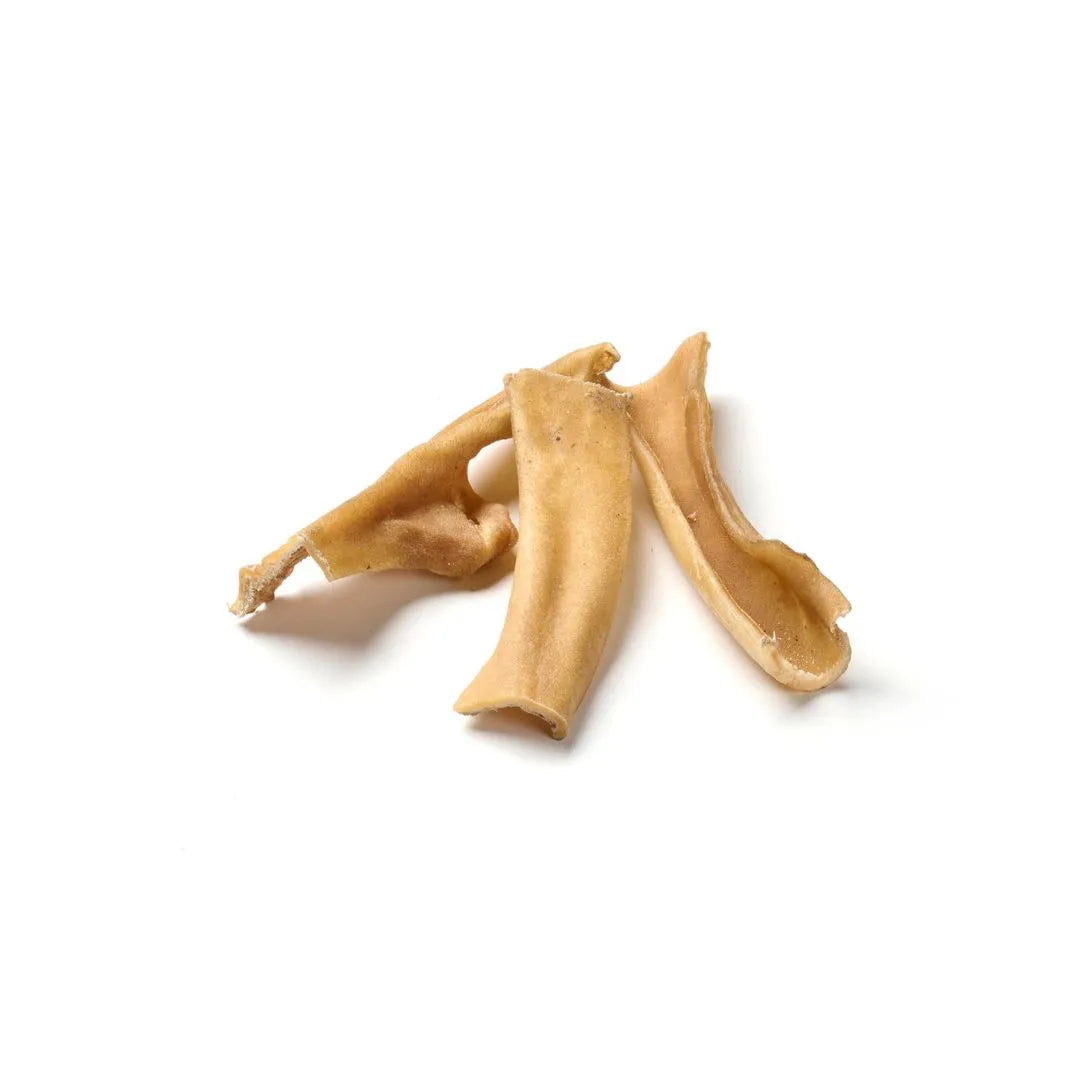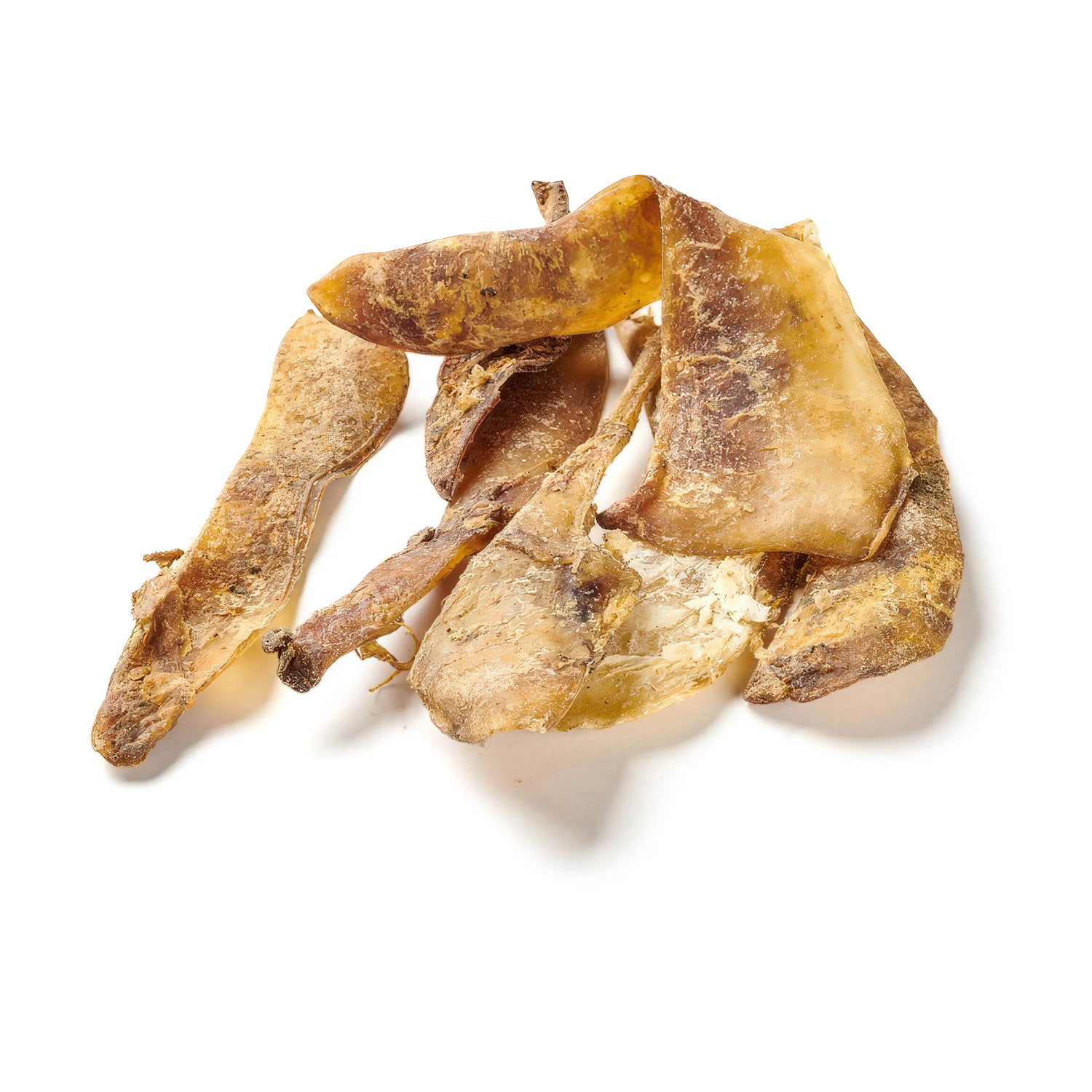
Horse meat for dogs
Share
Your dog's diet is crucial to their health and well-being. While many pet owners prefer traditional meat sources like chicken or beef, horse meat is gaining popularity as an alternative protein source in canine diets. Horse meat for dogs offers a number of unique benefits, including high digestibility and low allergen content, making it an excellent choice for sensitive or allergic dogs. In this blog post, we'll explore the different aspects of horse meat for dogs, including the health benefits, important safety considerations, and tips for introducing it into your four-legged friend's diet.
Content: Horse meat for dogs
- Benefits of horse meat for the health of dogs?
- Valuable minerals in horse meat
- Benefits for digestion
- Suitable for dogs with allergies
- The right fat content
- Can all dogs eat horse meat?
- Horse meat cooked or raw?
- Conclusion
Horse meat offers numerous health benefits for dogs and is an excellent addition to their diet. It is high in essential nutrients, including proteins, which are essential for muscle building and repair. Horse meat also contains less fat than many other meats, making it an ideal option for overweight dogs or those with lower energy needs. It is also rich in iron and omega-3 fatty acids, which strengthen the immune system and contribute to a healthy coat. Its hypoallergenicity also makes it a suitable choice for dogs with food allergies.
Delicious dog snacks for pure enjoyment are available from us!
Benefits of horse meat for the health of dogs?
Horse meat offers a wealth of health benefits for dogs, making it an excellent addition to their diet. It is particularly rich in essential nutrients, particularly proteins, which play a fundamental role in muscle building and repair. Compared to many other types of meat, horse meat has a lower fat content, making it an ideal option for overweight dogs or those with reduced energy needs. In addition, horse meat is rich in iron and omega-3 fatty acids, which can not only strengthen the immune system but also contribute to a healthy coat. The hypoallergenic properties of horse meat also make it a suitable choice for dogs with food sensitivities, as it minimizes the risk of allergic reactions . Overall, horse meat is a versatile and high-quality protein source that can help support the health and well-being of dogs.
Valuable minerals in horse meat
Horse meat for dogs stands out as an excellent source of iron, a mineral that is essential for the efficient transport of oxygen through the blood. It also has a significantly higher concentration of potassium compared to many other types of meat. This higher potassium content plays a crucial role in promoting heart health and supporting your dog's muscle function, making it a particularly valuable addition to your four-legged friend's diet.
Benefits for digestion
To optimally support your dog's digestion, muscle meat is often the more beneficial option because it is less rich in connective tissue than offal. When purchasing horse meat, it is important to make sure that it is free of offal to improve digestibility. This recommendation also applies to all types of meat that you plan to include in your dog's diet. The conscious selection of muscle meat helps to facilitate your four-legged friend's digestive processes and thus promote his general well-being.
Suitable for dogs with allergies
If your dog has allergies and has not yet had the opportunity to try horse meat, this could be a promising alternative for a targeted elimination diet. As part of the treatment of food allergies, switching to a diet that relies on a single protein source is often recommended - and horse meat is one such option. If your dog tolerates the horse meat without problems, this will significantly expand the range of treats and staple foods available, allowing you to make your four-legged friend's diet more varied and interesting. This strategy can not only help to minimize allergic reactions, but also improve your dog's quality of life by increasing variety in his diet.
High-quality dog chews for your faithful companion can be found here!
The right fat content
If it is necessary for your dog to keep an eye on his weight, it is advisable to choose lean quality horse meat, which has a fat content of less than 5%. At specialist horse butchers, you often have the opportunity to purchase high-quality, lean muscle meat that is ideal for the nutritional needs of a weight-conscious dog. This choice not only supports healthy weight management, but also helps to minimise the risk of obesity-related health problems by introducing a nutrient-rich, yet low-calorie component to your dog's daily feeding routine.
Can all dogs eat horse meat?
For many dogs, horse meat is an excellent dietary option. However, it is wise not to introduce all possible meat varieties into the diet right from the start. This way, you will have an unused meat source as a backup in case an allergy arises later. Therefore, start with the more common varieties such as chicken and beef and initially choose snacks made from these types of meat. If your dog develops an allergy to certain foods over time, horse meat could then be a valuable food alternative if it has not been part of his diet up to that point. It is also always advisable to discuss any changes to your dog's diet with a veterinarian to ensure the best course of action.
Horse meat cooked or raw?
You can offer your dog horse meat both raw and cooked. When feeding raw food, it is essential to ensure excellent meat quality and to take high hygiene standards and food safety measures into account to reduce the risk of disease. If you decide to serve the horse meat cooked, it is important to cook it thoroughly: pouring boiling water over the meat helps to eliminate germs on the surface. To ensure optimal safety, the meat should be cooked at a temperature of at least 65 °C for at least 10 minutes.
Conclusion
In conclusion, horse meat is a nutritious and hypoallergenic protein source for dogs that offers a variety of health benefits. It is rich in essential nutrients, including protein, iron and omega-3 fatty acids, and can help maintain muscle mass, strengthen the immune system and aid digestion. Especially for dogs with food intolerances or allergies, horse meat can be a valuable alternative to traditional meats. The decision between raw and cooked meat depends on individual preference and safety concerns, with careful attention to hygiene and food safety measures being crucial. Ultimately, it is advisable to discuss any changes to your dog's diet with a veterinarian to ensure that the food option chosen meets your dog's specific needs and requirements.
Treat your dog to something special with our chew products!

